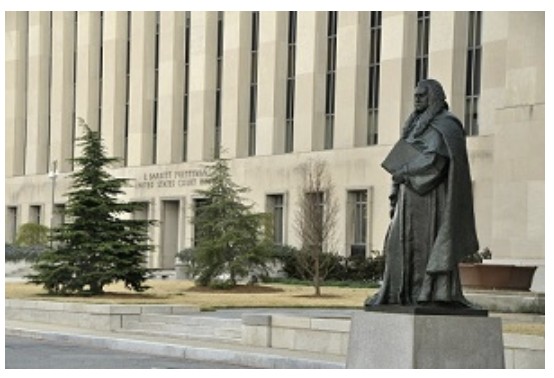Biofuel producers and agricultural stakeholders recently received some welcome news. In a series of key legal decisions, both the U.S. Supreme Court and the D.C. Circuit Court of Appeals upheld vital parts of the Renewable Fuel Standard (RFS) program, bringing some much-needed stability to our industry. At RINSTAR, we’ve put together this quick roundup to keep you informed on what these rulings mean for you.
Supreme Court Upholds Proper Venue for SRE Denial Challenges
On June 18, 2025, the U.S. Supreme Court delivered a win for biofuel groups by clarifying where legal challenges to the EPA’s denials of Small Refinery Exemption (SRE) petitions should be filed. The Court ruled that these challenges must go directly to the D.C. Circuit Court of Appeals rather than regional circuit courts.

This decision came after Sinclair Wyoming Refining Company LLC tried to challenge the EPA’s denial of its SRE petition in the 10th Circuit Court. Biofuel groups like the Renewable Fuels Association (RFA) and Growth Energy argued that the Clean Air Act requires such nationally applicable EPA decisions to be reviewed only by the D.C. Circuit. The Supreme Court agreed.
In a joint statement, Renewable Fuels Association and Growth Energy praised the decision stating “Today’s decision is a victory for the American biofuels industry and for the rural communities that depend on a strong Renewable Fuel Standard. The Court agreed with our argument that the D.C. Circuit is the only appropriate venue for litigation on EPA’s small refinery exemption decisions. Because the Renewable Fuel Standard is a national program and SREs have nationwide impacts, any challenges to SRE decisions belong squarely in the D.C. Circuit. Allowing 12 different Circuit Courts to adjudicate SREs would result in a fractured and inconsistent body of law, causing chaos and confusion in the marketplace. The court’s opinion today gives farmers and ethanol producers much greater certainty about SRE litigation under the Renewable Fuel Standard, which continues to be one of the nation’s most successful clean energy programs.”
D.C. Circuit Upholds EPA’s 2023–2025 RFS Set Rule
Adding to the recent string of legal wins for our industry, the D.C. Circuit Court has upheld the EPA’s RFS Set Rule for 2023–2025. Finalized last year, this rule set Renewable Volume Obligations (RVOs) for those compliance years under the EPA’s expanded authority after 2022.
Some groups had challenged the rule, questioning whether the EPA had the legal power to set these volumes beyond statutory targets. However, the court sided with the EPA, confirming that its process and final standards followed the law. This decision removes a lot of the legal uncertainty surrounding the Set Rule, which outlines blending targets for conventional, advanced, and cellulosic biofuels through 2025.
EPA Reports Additional SRE Petitions Filed
While recent court decisions have helped solidify some important policy wins, the EPA also shared an update on Small Refinery Exemption (SRE) petitions. As of June 20, 2025, 20 new SRE petitions have been filed since the last update, bringing the total number of pending petitions to 189.
Implications for the Renewable Fuels Industry
Overall, these legal victories and regulatory updates are great news for the stability of the RFS program. The Supreme Court’s venue ruling helps keep legal challenges streamlined, and the D.C. Circuit’s decision to uphold the Set Rule ensures blending obligations remain in place through 2025.
At the same time, the large number of pending SRE petitions still brings some uncertainty to the table. Biofuel groups continue to keep a close watch, reminding everyone that strong enforcement and clear, predictable policies are key to supporting our farmers, cutting greenhouse gas emissions, and strengthening America’s energy future.
At RINSTAR, we remain committed to keeping you informed on major policy, regulatory, and legal developments impacting the renewable fuels sector.
Subscribe to our newsletter for ongoing updates and detailed industry analyses.
